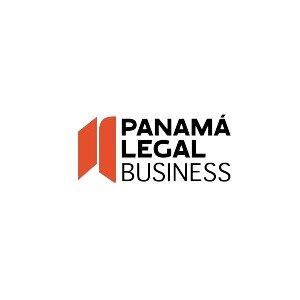What licensing steps are required to launch a digital wallet service in Panama, and what AML/KYC obligations apply?
Lawyer Answers

Molina & Co
Response from MOLINA & CO.
Thank you for your inquiry.
In Panama, electronic wallets and cross-border payment services are principally regulated by:
1) Primary Regulator
- Superintendencia de Bancos de Panamá (SBP) – when activities resemble issuance of electronic money, payment services, stored-value, or financial intermediation.
- If services involve securities or tokenized instruments, the Superintendencia del Mercado de Valores (SMV) may also participate.
2) Licensing Framework
A fintech offering e-wallets and cross-border payments generally requires:
- Submission of a license application to SBP
- Corporate formation in Panama
- AML/KYC compliance structure
- Business plan, risk assessment, and cybersecurity policies
- Identification of shareholders, directors, and key personnel
- Fit & proper requirements for management
- Approval followed by operational authorization
Processing time typically ranges 4–8 months, depending on project scope and regulatory review.
3) Minimum Capital
Minimum capital depends on activity classification under banking / payment services regulations.
Typical requirements range from approximately USD 250,000 – 1,000,000+, depending on scope, product design, risk exposure, and cross-border operations.
4) Ongoing Obligations
- Periodic financial statements
- Transaction reporting
- Cybersecurity controls
- Operational audits
- Regulatory inspections
- Adequate data-protection compliance
5) AML / KYC Requirements
The entity must:
- Maintain a documented AML program
- Appoint a compliance officer
- Conduct identity verification of users (KYC)
- Monitor transactions, including cross-border
- Report suspicious activities (ROS)
Panama applies FATF-aligned standards, including enhanced due-diligence for higher-risk profiles.
6) Fees – Legal & Government (Estimate)
- Regulatory / Government costs:
Approx. USD 5,000 – 15,000 depending on license type - Professional fees (MOLINA & CO.):
From USD 18,000 – 45,000, depending on scope, structure, and regulatory complexity
Ongoing compliance support can be provided under separate service agreements.
If you would like assistance with feasibility analysis, licensing, compliance design, or incorporation, our firm would be pleased to guide you.
— MOLINA & CO. – Panama
Roderigo Julio Molina O

Molina & Co
Thank you for your inquiry.
In Panama, electronic wallets and cross-border payment services are principally regulated by:
1) Primary Regulator
- Superintendencia de Bancos de Panamá (SBP) – when activities resemble issuance of electronic money, payment services, stored-value, or financial intermediation.
- If services involve securities or tokenized instruments, the Superintendencia del Mercado de Valores (SMV) may also participate.
2) Licensing Framework
A fintech offering e-wallets and cross-border payments generally requires:
- Submission of a license application to SBP
- Corporate formation in Panama
- AML/KYC compliance structure
- Business plan, risk assessment, and cybersecurity policies
- Identification of shareholders, directors, and key personnel
- Fit & proper requirements for management
- Approval followed by operational authorization
Processing time typically ranges 4–8 months, depending on project scope and regulatory review.
3) Minimum Capital
Minimum capital depends on activity classification under banking / payment services regulations.
Typical requirements range from approximately USD 250,000 – 1,000,000+, depending on scope, product design, risk exposure, and cross-border operations.
4) Ongoing Obligations
- Periodic financial statements
- Transaction reporting
- Cybersecurity controls
- Operational audits
- Regulatory inspections
- Adequate data-protection compliance
5) AML / KYC Requirements
The entity must:
- Maintain a documented AML program
- Appoint a compliance officer
- Conduct identity verification of users (KYC)
- Monitor transactions, including cross-border
- Report suspicious activities (ROS)
Panama applies FATF-aligned standards, including enhanced due-diligence for higher-risk profiles.
6) Fees – Legal & Government (Estimate)
- Regulatory / Government costs:
Approx. USD 5,000 – 15,000 depending on license type
- Professional fees (MOLINA & CO.):
From USD 18,000 – 45,000, depending on scope, structure, and regulatory complexity
Ongoing compliance support can be provided under separate service agreements.
If you would like assistance with feasibility analysis, licensing, compliance design, or incorporation, our firm would be pleased to guide you.
— MOLINA & CO. – Panama
Roderigo Julio Molina O

Studio Panama Italia
In Panama, a digital wallet / electronic payments fintech is regulated mainly by the Superintendencia de Bancos de Panamá (SBP), with AML oversight by UAF (Unidad de Análisis Financiero).
Licensing and setup
You must incorporate a Panamanian entity and apply for authorization as a Non-Bank Financial Entity / Payment Service Provider (there is no light “sandbox” license). The SBP reviews bylaws, shareholders, directors, business plan, risk model, IT/security architecture, and source of funds. Minimum capital is not fixed by law but is assessed case-by-case and must be sufficient for operations and risk exposure.
AML / KYC obligations
You are a reporting entity under Panama’s AML laws. Mandatory duties include full KYC (customer identification and verification), transaction monitoring, STR reporting to the UAF, appointment of a compliance officer, internal AML manuals, and staff training. Cross-border payments trigger enhanced due diligence.
Ongoing obligations
Periodic financial and operational reporting to the SBP, AML reports to the UAF, audits when required, and continuous regulatory supervision. Non-compliance can lead to fines, license suspension, or closure.
Free • Anonymous • Expert Lawyers
Need Personal Legal Help?
Connect with experienced lawyers in your area for personalized advice on your specific situation.
No obligation to hire. 100% free service.
Related Legal Experts
Get personalized help from lawyers specializing in this area

All lawyers are verified, licensed professionals with proven track records



